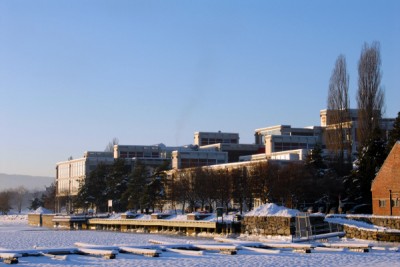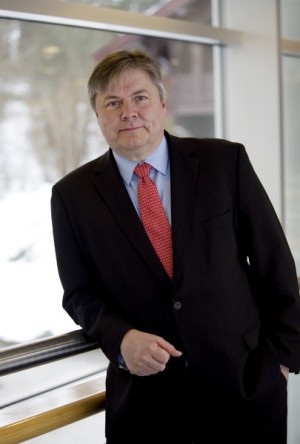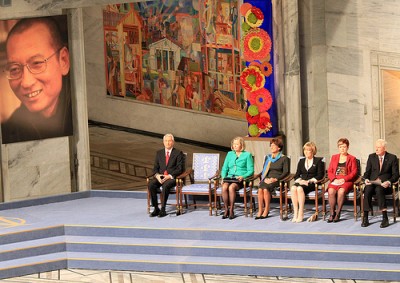Serious calls are going out for changes in the make-up of the Norwegian Nobel Committee, after China’s angry reaction to last year’s Nobel Peace Prize continues to hurt Norwegian interests. Risk management giant Det Norske Veritas (DNV), arguably Norway’s most international company, seems to be the latest casualty but Norwegian officials remain intent on resisting Chinese pressure.

Alarms started ringing at the Oslo-area headquarters of DNV earlier this month, reports newspaper Aftenposten, when Chinese authorities suddenly revoked DNV’s license to conduct certification operations in China. That means around 300 Chinese employees of DNV can no longer work for DNV.
Last week things got worse, according to Aftenposten, when DNV also lost its license to certify imports and exports in China. DNV executives reportedly are convinced the license revocations are another reaction by Chinese authorities to last year’s awarding of the Nobel Peace Prize to Chinese dissident Liu Xiaobo. The Chinese themselves haven’t given any reason, or tied the license revocations to the Peace Prize.

“They naturally haven’t done so,” DNV chief executive Henrik O Madsen told Aftenposten. But neither he nor his colleagues have any doubt the measures are another means being used by the Chinese to try to punish Norway for embarrassing them by awarding the Peace Prize to Liu, one of their foremost critics who continues to languish in a Chinese prison for advocating more human rights and democracy in China.
The actions taken against DNV prevent nearly a third of DNV’s staff of around 1,000 persons in China from doing their work. “We can’t tolerate being without these licenses for very many months,” Madsen told Aftenposten. He now warns that Norwegian authorities can no longer simply hope that tensions between China and Norway over the Peace Prize will ease over time and that the troubles will be limited to the political sphere, and not hurt business. That’s been the Norwegian government’s strategy since Liu’s prize was awarded last fall, and Trade Minister Trond Giske remains silent on the matter.
For DNV, at least, it’s no longer “business as usual” with China. In a commentary published in Aftenposten, Madsen stressed how important it is for businesses to be able to operate in China, and that it’s critical for DNV and “central portions of Norwegian business” that the political stalemate between Norway and China ends. He doesn’t buy the argument that China will remain pragmatic and continue doing business if it serves China’s interests.
Madsen thus proposes that the “global dimensions” of the Nobel Peace Prize should be reflected in the make-up of the committee awarding the prize. Under the terms of prize benefactor Alfred Nobel’s will, the committee is supposed to be appointed by the Norwegian Parliament. Madsen thinks more non-Norwegian interests should be represented.
“Given how the world is today, it wouldn’t be unreasonable that more portions of the world are represented on the committee, including Asia,” Madsen wrote. “In that way, the prize would achieve greater international understanding and legitimacy, and not be tied to Norwegian interests and political winds.”
‘Can’t serve Norwegian interests’
Thorbjørn Jagland, the former president of Norway’s Parliament who now serves as chairman of the Nobel Committee and secretary general of the Council of Europe, was quick to slam Madsen’s proposal. “We can’t form a committee to serve Norwegian interests,” Jagland told Aftenposten. “The reason the Peace Prize has such high status is because it’s completely independent of political and economic interests.”

He also rejected Madsen’s suggestion that the current committee has deficient legitimacy. “The most recent prize has had enormous international legitimacy,” Jagland claimed, noting that “only a few” countries have protested against it. He said DNV “can gladly express their worries, but I think what’s important here is to think long-term.”
Asked whether he thinks the icy relations between China and Norway will last long, Jagland said he had no opinion on that and that it’s not the committee’s responsibility to have an opinion either.
Madsen isn’t alone in worrying about the Nobel Committee’s composition or the prizes it has awarded, with Oslo attorney Fredrik Heffermehl criticizing for committee for years and now human rights advocate Nils A Butenschøn joining the chorus. Butenschøn, a researcher and professor who heads the Norwegian Centre for Human Rights, thinks it’s time to re-evaluate how the Parliament has interpreted its role in appointing the Nobel Committee.
“The stronger the Nobel Prize is identified with ‘official Norway,’ the higher the risk is for Norwegian companies,” Butenschøn told Aftenposten. “That’s why it’s so important for the Parliament to appoint a committee that really is independent.”
Butenschøn said he’s not so sure the political parties, who for years have appointed their own members to the committee in accordance with the parties’ current representation in Parliament, are best able to choose Peace Prize winners. A spokesperson for the president of the Parliament, Dag Terje Andersen of the Labour Party, confirmed there are no rules that prevent non-Norwegians from being on the committee and that Nobel’s will gives the Parliament wide leeway for appointments.
Other leading politicians in Parliament from both ends of the political spectrum see no need for changes in the Nobel Committee’s make-up. Marit Nybakk of the Labour Party said she think the current system is fine, as does Per-Kristian Foss of the Conservative Party, a former finance minister. Foss indicated it would always be impossible to convince representatives of “totalitarian regimes” that there’s a difference between a committee named by the Parliament and the Parliament itself.
Øyvind Korsberg, vice president of the Parliament from the Progress Party, wouldn’t reject the idea of international representation on the committee. “We should be able to have a debate about this,” Korsberg said.
“But if the goal is to make the committee more international to hinder prize choices that irritate the powers-that-be in individual countries, I’d caution against that,” Korsberg said. “The Nobel Committee shall and must dare to land on prize winners that aren’t blessed by the world’s major powers.”
Views and News from Norway/Nina Berglund
Join our Reader Response forum if you’d like to comment on this story. Reader response

